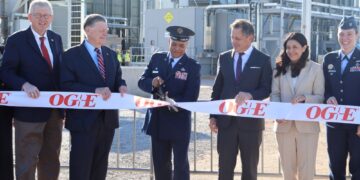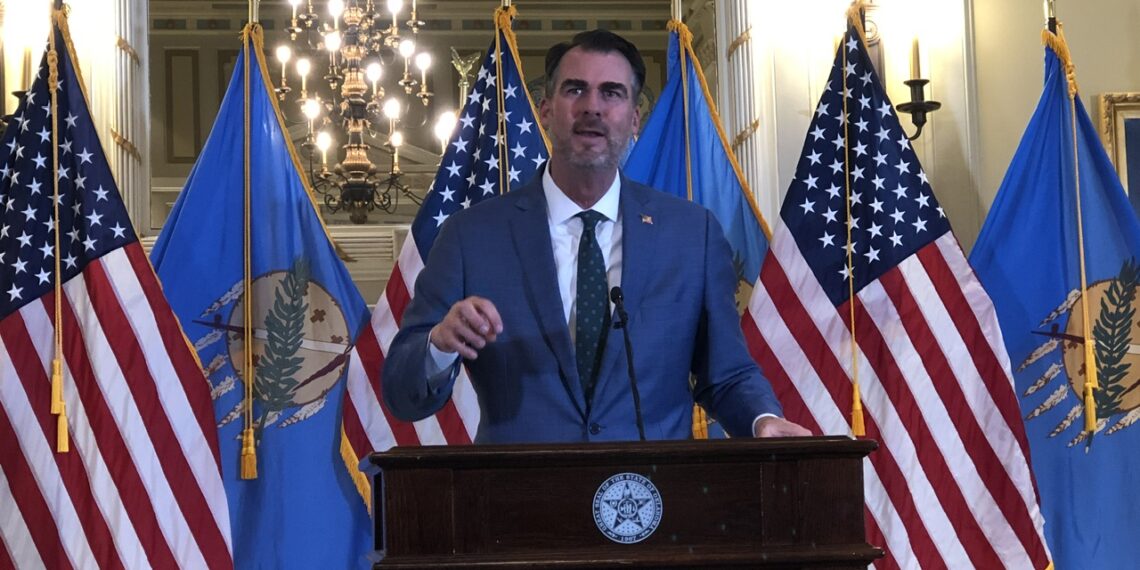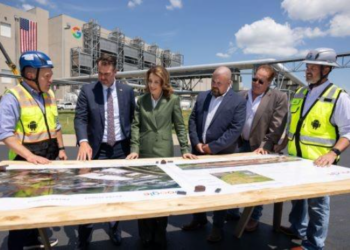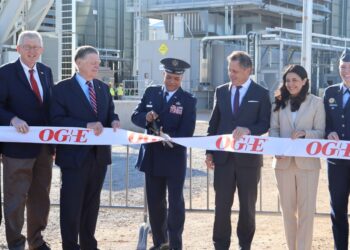Note: “Aluminium” is the spelling for “aluminum” used in other English-speaking countries and throughout the world.
OKLAHOMA CITY (OBV) – The Oklahoma Legislature is backing what is being touted as historic legislation that sets out to bring transformative capital investment and high-wage manufacturing jobs to the state and supports the development of a massive $4 billion primary aluminum production plant in the Tulsa Port of Inola.
House Bill 2781 is on Gov. Kevin Stitt’s desk after passing both the Oklahoma Senate and Oklahoma House of Representatives last week.
The bill creates the Reindustrialize Oklahoma Act (ROA-25) investment rebate program. The Oklahoma Department of Commerce (ODOC) will run the program to incentivize manufacturing companies to invest in Oklahoma.
“This is an historic day for Oklahoma,” said Senate President Pro Tempore Lonnie Paxton, R-Tuttle. “With the passage of the Reindustrialize Oklahoma Act, we are sending a clear message to the world – Oklahoma is open for business and ready to lead the next era of American manufacturing. ROA-25 gives our state a powerful tool to compete for high-impact investments that bring long-term jobs, economic growth and prosperity to our citizens. This is a smart, pro-economic development policy that only rewards real performance. There is no upfront giveaway. Companies must deliver major private investment and create jobs before any rebates are issued. It’s a win-win for Oklahoma workers and our economic future.”
Under the program, eligible manufacturers who invest at least $2 billion and create 700 new jobs in the first year (increasing to 1,000 in the second year and beyond) qualify for performance-based rebate payments through July 1, 2045. The act establishes a long-term annuity structure to fund rebates via the ROA-25 Revolving Fund and ROA-25 Beneficiary Fund, according to State Capitol officials.
The bill also supports Emirates Global Aluminium (EGA) building the aforementioned aluminum production plant on 350 acres of land in the Port of Inola. It will be the first new primary aluminum production plant to be built in the United States in 45 years.
Stitt described EGA coming to Oklahoma as the biggest economic development project in state history.
“We’re really excited because it just shows that Oklahoma is pro-business [and] pro-friendly environment,” Stitt said.
Legislators are touting the investment as historic.
“This investment marks a historic milestone for Oklahoma, national security and the future of American manufacturing, said Rep. Brian Hill, R- Mustang, Chairman of Commerce and Economic Development. “As the first new aluminum smelter built in the U.S. in over 45 years, it will create more than 1,000 direct jobs and thousands more across the supply chain. Oklahoma is proud to lead in critical minerals, drive economic growth and build a stronger future for our families and communities.”
Legislative officials are crediting the plant coming to Oklahoma to a strategic international deal negotiated by President Donald Trump.
“The Reindustrialize Oklahoma Act marks a generational opportunity to restore America’s manufacturing dominance and create meaningful jobs for our communities,” said House Speaker Kyle Hilbert, R-Bristow. “This is a direct result of President Trump’s America First economic agenda, and Oklahoma is proud to lead the way.”
Stitt and EGA entered into a Memorandum of Understanding (MOU) detailing the conditions of EGA’s investment in the state on May 16.
EGA’s new facility is expected to created 1,000 direct jobs and 1,800 indirect jobs.
The average wage at the plant will be over $80,000 a year, according to Stitt.
Mubadala Investment Company of Abu Dhabi and Investment Corporation of Dubai own EGA. The company has 7,000 employees across the globe. It is the largest company jointly owned by two Emirates, according to the EGA website.
The plant will be the largest of its kind in the U.S. It will produce billets, sheet ingots, high-purity aluminum, and foundry alloys. Officials with Stitt’s office say it will nearly double the nation’s domestic aluminum production.
“The United States has been an important market for EGA for several decades, and we know there is strong demand for our high-quality metal ‘made in America,’” said Abdulnasser Bin Kalban, Chief Executive Officer of Emirates Global Aluminium. “EGA has the skills, technology and capital to start rebuilding this great American industry, and in Oklahoma I am confident we will secure the right conditions to do so. This is an important moment for EGA, and for the economic relationship between the United States and the United Arab Emirates.”
Stitt said EGA manufacturing in Oklahoma the potential to facilitate future investment in the state by other companies.
“What I get most excited about is they’re creating the product that creates all these other products. They’re actually creating aluminum. And we have an opportunity to go after all these other manufacturing facilities that use aluminum to create other products,” Stitt said. “It’s really, really exciting for our state, and it’s just a confirmation that Oklahoma is the place to be located.”
Aluminum produced at the plant will be used in aerospace and defense sectors—Oklahoma’s fastest-growing industry—as well as the automotive, food and beverage and other critical industries, governor’s office officials said.
Oklahoma House of Representatives Speaker Kyle Hilbert, R-Bristow, said the new plant will boost manufacturing in the U.S.
The development makes Oklahoma a prominent player in key industries, according to John Budd, CEO of the Oklahoma Department of Commerce.
“This announcement catapults Oklahoma to the forefront of the critical minerals and aluminum industry in the United States,” Budd said. “EGA choosing Oklahoma also unlocks the ability for us to compete successfully for opportunities we haven’t been able to pursue in the past. I can’t wait to see how this project transforms the economy in Northeast Oklahoma and across the entire state.”
Aluminum is the United Arab Emirate’s largest export after oil and gas. EGA produces one-in-every 25 tons of aluminum made worldwide, which amounts to four percent of the world’s total production and almost half of the aluminum produced in the Gulf.

















